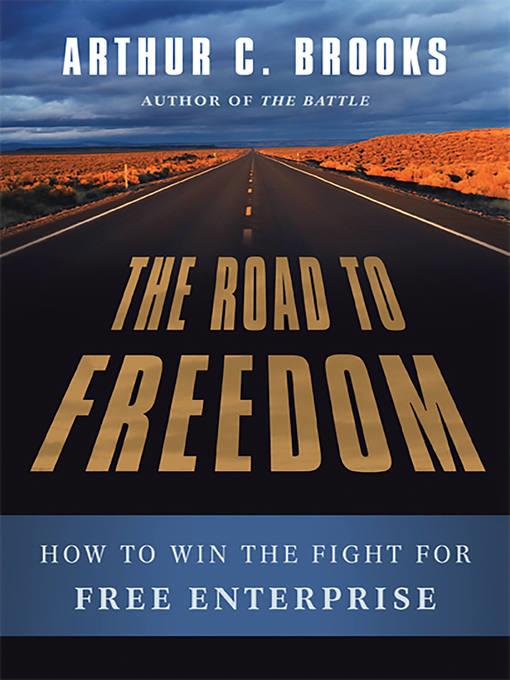
The Road to Freedom
How to Win the Fight for Free Enterprise
کتاب های مرتبط
- اطلاعات
- نقد و بررسی
- دیدگاه کاربران
نقد و بررسی

March 12, 2012
American Enterprise Institute president Brooks (The Battle) weaves a paean to the free enterprise system, calling it more efficient than and morally superior to the alternatives, and uses shaky though well-documented generalizations and anecdotal evidence to justify his credo. He argues that the average person in 1800 had the standard of living of his Stone Age counterpart and that Americans are happiest working 50–59 hours per week at jobs that “the vast majority” like. Free enterprise, according to Brooks, offers superior opportunity for “what all people truly crave: earned success.” In this sense, it eclipses both statism and the meretricious practice of corporate cronyism. Paradoxically, although Americans endorse the virtues of free enterprise and limited government, he writes, the bipartisan slide of recent decades toward big government has blinded us to the inroads of statism. Brooks seeks to defang the most rabid of partisan arguments (“Even hardline conservatives don’t object to minimum basic protections for poor people”) while asserting that the “safety net” has become too broad. Though Brooks aims to present arguments for policy reform, more specifics on how to break through the thickets along the way would have given this treatise more substance.

March 15, 2012
American Enterprise Institute president Brooks' follow-up to The Battle: How the Fight Between Free Enterprise and Big Government Will Shape America's Future (2010). The author presents his argument in two parts: "Making the Moral Case for Free Enterprise" and "Applying the Moral Case for Free Enterprise." In the first, Brooks portrays America as "an opportunity society" and uses studies of mobility between income classes to show that neither the poor nor the rich must remain as they are. This allows him to argue that U.S. income inequality is actually beneficial because "the moral rejoinder about the fairness of rewarding merit through free enterprise will carry the day." He also defends a "minimum safety net" not as a means to increase material equality but as a way to preserve "access to basic medical care, sufficient food and basic shelter." Brooks writes that the safety net should still be available for American citizens most in need and would include food stamps, Temporary Assistance to Needy Families (TANF), Medicaid and Supplemental Security Income. In the second section, the author insists that the primary concern should be fixing the debt problem, which means dealing with "out of control entitlement spending." Brooks contends that entitlements should be a basic safety net for the poor and not a source of retirement benefits for everybody. "The system should encourage people to work longer, retire later, and save more, so they can take care of themselves without resorting to the safety net," he writes. If entitlements are cut in the way the author suggests, foreigners will invest in America and recovery will be possible. Brooks does not consider the 2008 financial crisis and its great affect on such confidence. Another restatement of the views associated with neoconservatives, freshening up the packaging but not the substance.
COPYRIGHT(2012) Kirkus Reviews, ALL RIGHTS RESERVED.

























دیدگاه کاربران